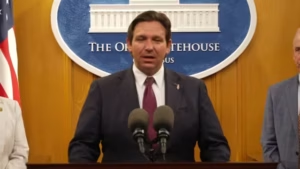Following a controversial jury verdict, Greenpeace is ordered to pay nearly $670 million in damages to Energy Transfer over defamation claims related to oil pipeline protests, raising concerns among First Amendment advocates.
High-Stakes Legal Battle: Greenpeace Faces $670 Million Verdict for Defamation

High-Stakes Legal Battle: Greenpeace Faces $670 Million Verdict for Defamation
The environmental organization Greenpeace incurs significant legal losses that could threaten free speech rights for nonprofits.
In a landmark case with vast implications for free speech, environmental group Greenpeace has been hit with a staggering verdict of nearly $670 million in damages, primarily linked to claims of defamation against the oil company Energy Transfer. This legal action has considerable repercussions, unsettling activist organizations and igniting debates about free speech and political protest.
The lawsuit, initiated by Energy Transfer in 2019, accused Greenpeace of orchestrating a damaging scheme targeting the company’s finances and infrastructure, particularly during protests against the Dakota Access Pipeline. As the case unfolded in the Mandan, N.D., courthouse, jurors sided with Energy Transfer, awarding a significant portion of the damages for defamatory statements made by Greenpeace about the alleged destruction of sacred sites.
Experts in First Amendment law, including Georgetown Law professor David D. Cole, emphasize the chilling effect of this verdict on nonprofit organizations. "This ruling could deter any group from engaging in political activism for fear of being subjected to similar lawsuits," he remarked. Environmental groups, civil rights organizations, and other advocacy entities now face heightened apprehensions regarding their freedom to speak out.
Greenpeace has denounced the ruling as an attempt by Energy Transfer to silence dissenting voices. “It's essential for everyone, regardless of their political stance, to be concerned about this case,” expressed Sushma Raman, interim executive director of Greenpeace USA. The organization plans to appeal the verdict, aiming to defend not only its actions but also the broader principles of free expression.
This unfolding saga illustrates the escalating clash between corporate interests and grassroots activism, and the outcomes could potentially reshape the landscape of public discourse and protest viability in the United States.





















